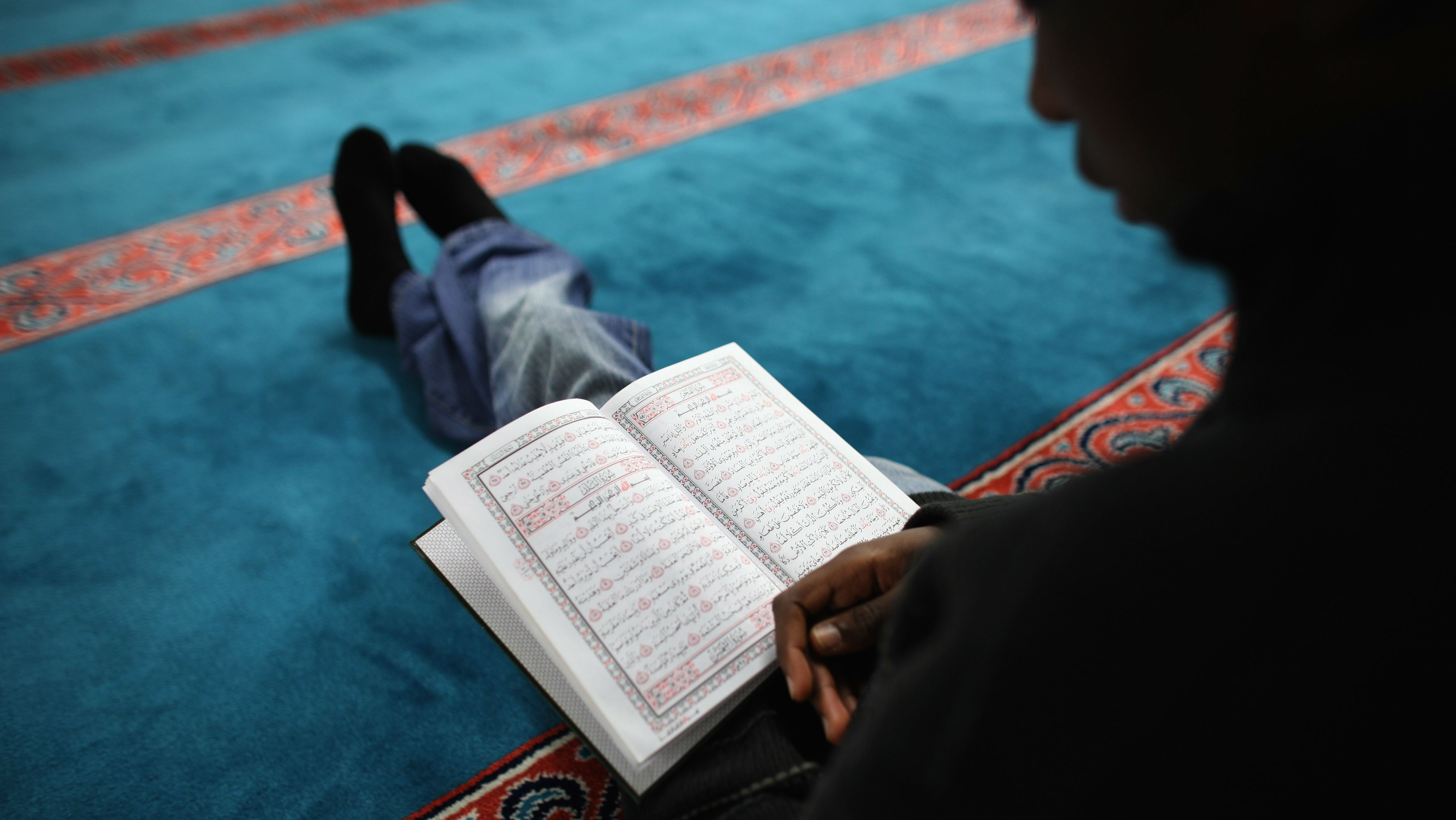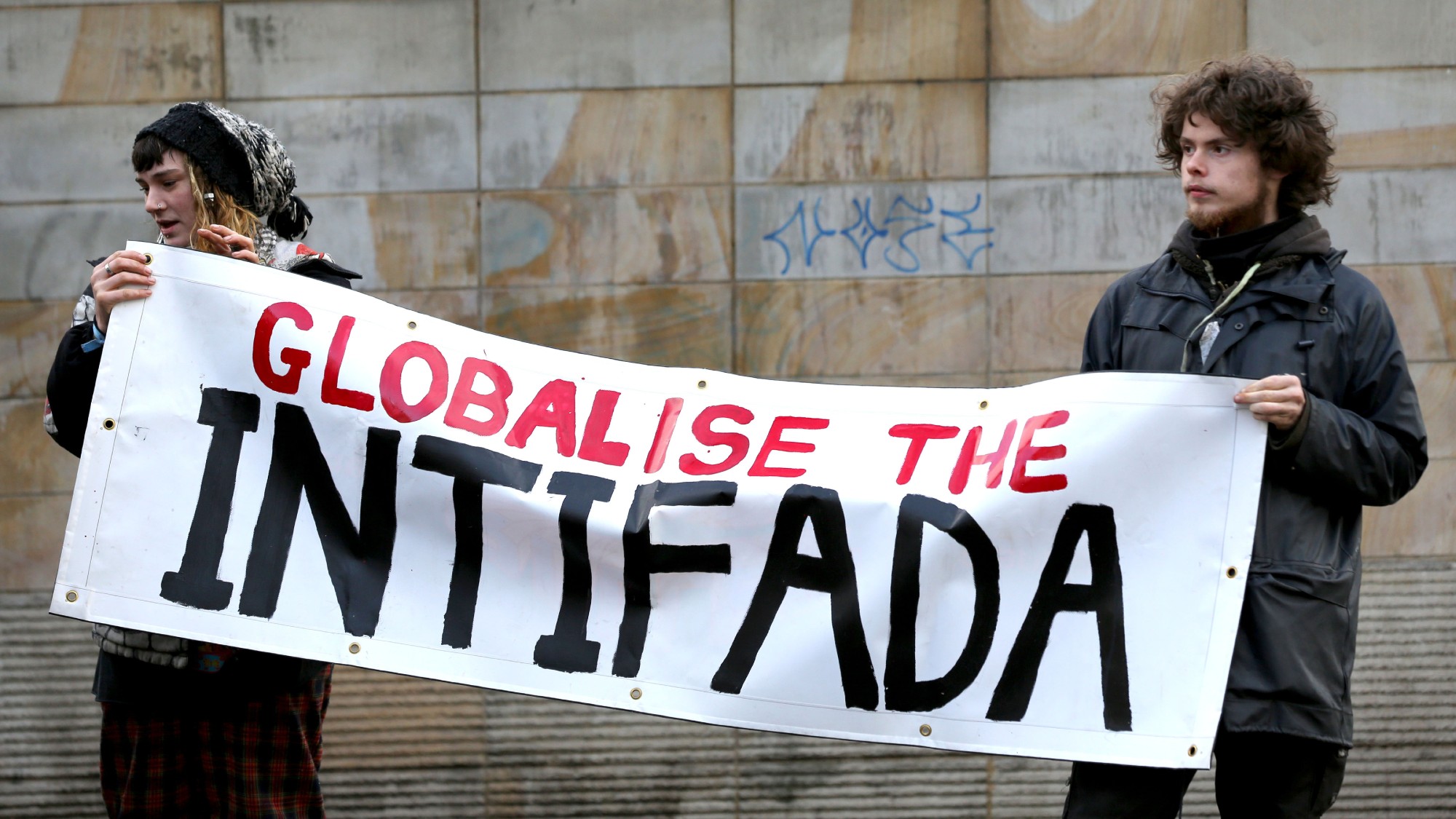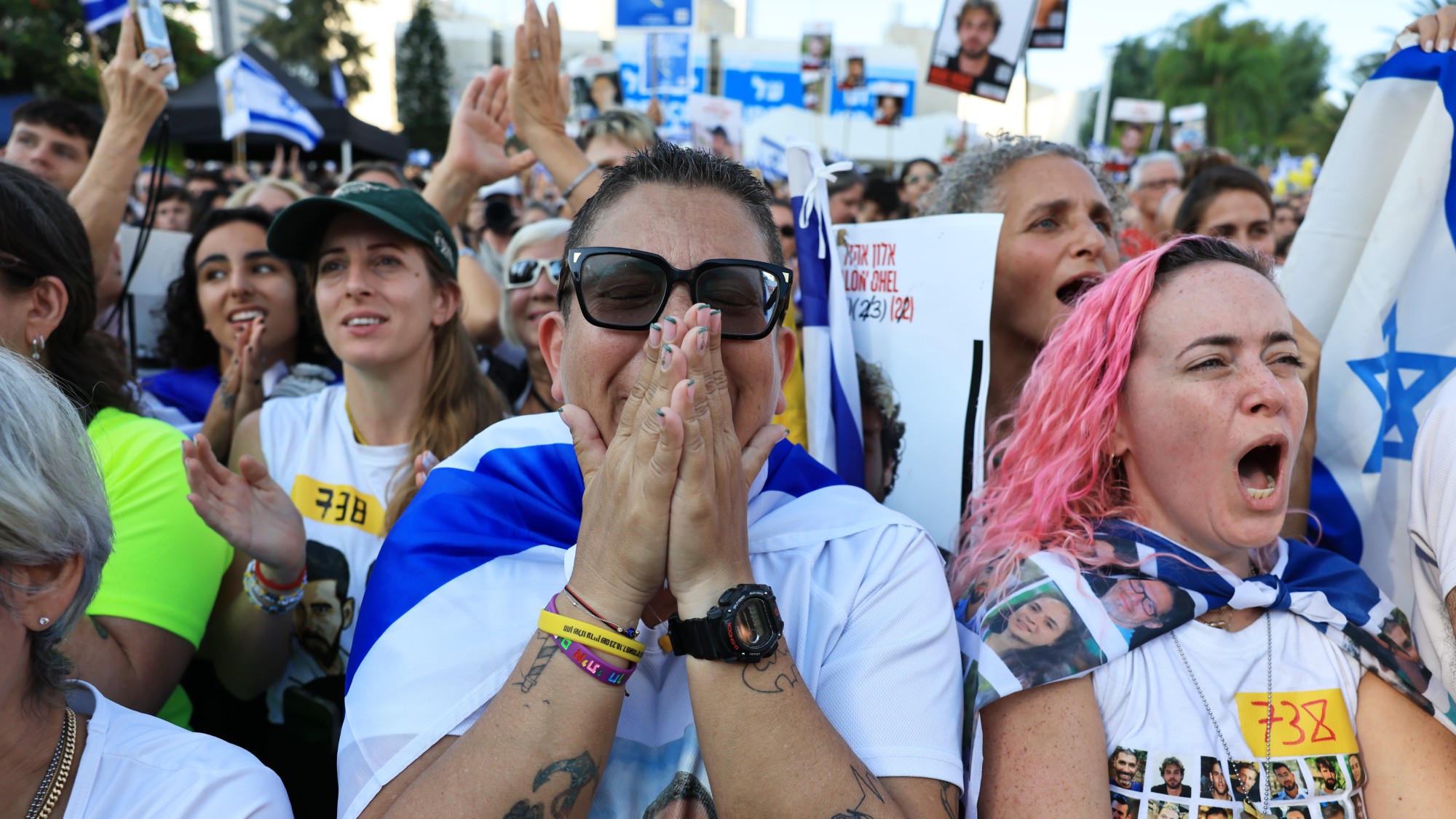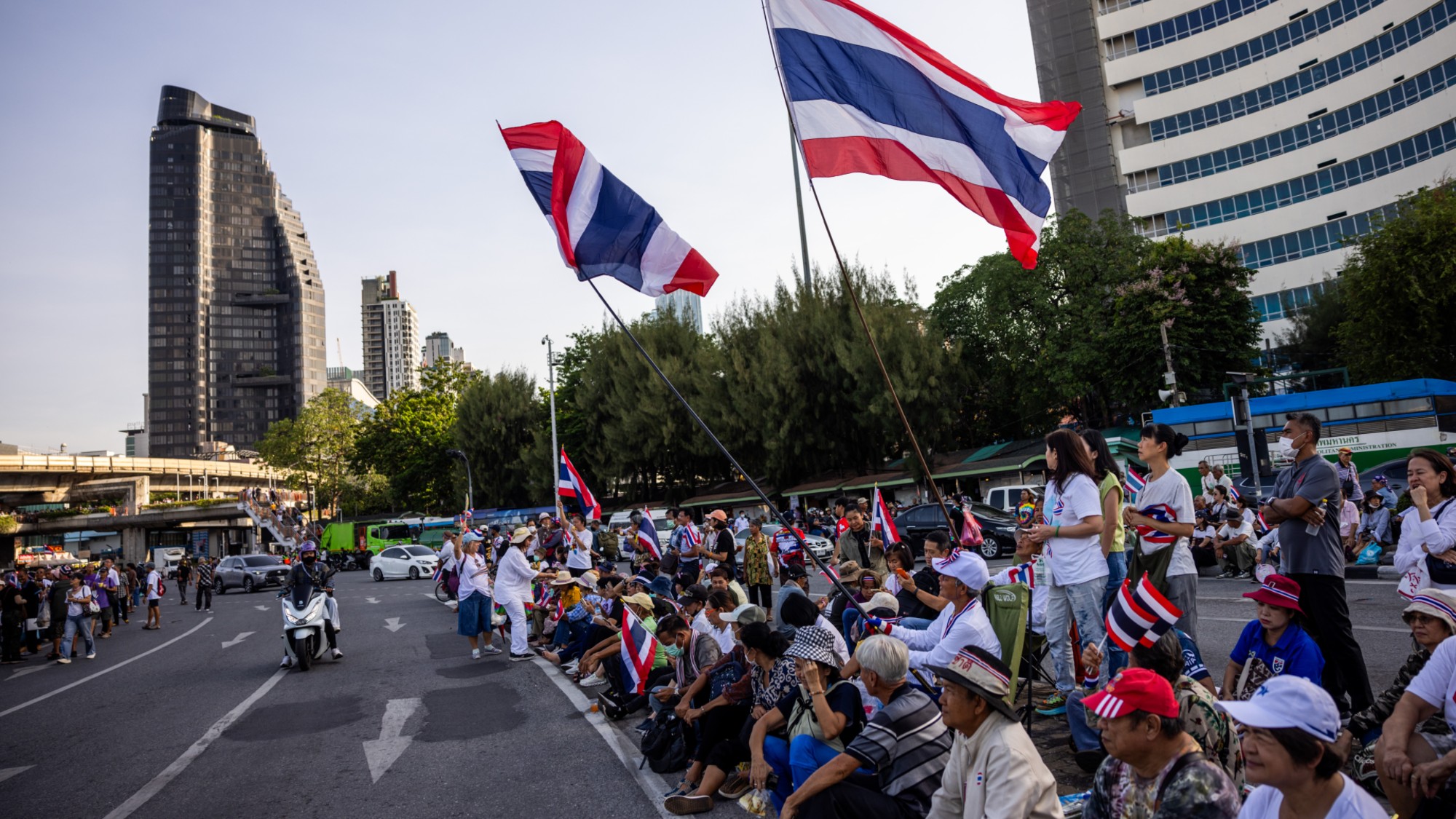Can polls really reveal what British Muslims think about terrorism?
Surveys on extremism can lead to some disturbing headlines, but they don't always tell the full story

A free daily email with the biggest news stories of the day – and the best features from TheWeek.com
You are now subscribed
Your newsletter sign-up was successful
In a year that has already seen three deadly terror attacks on UK soil in three months, the spread of Islamist extremism is at the forefront of many people's minds.
In recent years, polls and studies have sought to discover how Britain's Muslims feel about extremism and the terrorist threat.
Why the polls never give a full picture
The Week
Escape your echo chamber. Get the facts behind the news, plus analysis from multiple perspectives.

Sign up for The Week's Free Newsletters
From our morning news briefing to a weekly Good News Newsletter, get the best of The Week delivered directly to your inbox.
From our morning news briefing to a weekly Good News Newsletter, get the best of The Week delivered directly to your inbox.
As with many questions that rely on polling data, the answer depends on what, who and where you ask.
Asking British Muslims their opinions might seem like a simple way to get a picture of how the community as a whole feels towards extremism, but polling is far from straightforward.
One of the most recent large-scale surveys of social attitudes within British Muslim communities, carried out for Channel 4 by ICM in 2016, found one per cent "completely" sympathised with people who took part in suicide bombings to "fight injustice", while three per cent had "sympathy to some extent".
Meanwhile, 0.5 per cent said they fully sympathised with those who committed terrorist acts to further a political cause, while another 3.5 per cent had "some sympathy".
A free daily email with the biggest news stories of the day – and the best features from TheWeek.com
However, ICM's methodology came under fire from the Muslim Council of Britain, who said the poll's sampling meant it was not representative of the British Muslim community as a whole.
Writing in The Guardian, Miqdaad Versi, the council's chief, said that by choosing to question people only in areas where at least a fifth of the local population was Muslim, the survey was skewed toward "poor and religiously conservative" Pakistani and Bangladeshi enclaves.
Understanding the data
It is impossible to draw meaningful conclusions from surveys of British Muslims without also examining the opinions of non-Muslims.
While the 2016 ICM poll ran a control group consisting mostly of Christians and non-religious people, no media outlet actually compared that data.
If they had, they would have found that while four per cent of Muslims had some degree of sympathy for suicide bombers and terrorists, one per cent of the control group also had "some sympathy".
While 13 per cent of Muslim respondents said they could understand how a British Muslim could become attracted by radicalism, 26 per cent of the control group said they could.
Open to (mis)interpretation
Once the data is out of the statisticians' hands, it is subject to misinterpretation and misrepresentation in the press.
In 2006, an ICM opinion poll was widely reported as showing that 20 per cent of British Muslims sympathised with the bombers who carried out the 7/7 attack in London.
However, the actual phrasing of the question asked if respondents sympathised with the "feelings and motives" of the suicide bombers. Asked if the bombing itself was justified, 99 per cent said no.
More recently, in 2015, The Sun claimed one in five British Muslims sympathised with jihadis.
Its source was a poll by Survation which specifically asked if participants had any sympathy for "young Muslims who leave the UK to join fighters in Syria".
Five per cent said they had "a lot" , while another 15 per cent had "some" sympathy.
But their compassion "lay with the young Brits, not the Isis jihadis", says The Spectator.
Crucially, one in six non-Muslims asked the same question also expressed sympathy.
Why should "one person's world view [be] automatically exempt from scrutiny", asked the magazine, while a Muslim's is viewed with suspicion "just because part of it involves going to a mosque?"
Press regulator Ipsos ruled the Sun's headline was misleading and the paper was forced to publish a statement acknowledging that.
-
 The environmental cost of GLP-1s
The environmental cost of GLP-1sThe explainer Producing the drugs is a dirty process
-
 Greenland’s capital becomes ground zero for the country’s diplomatic straits
Greenland’s capital becomes ground zero for the country’s diplomatic straitsIN THE SPOTLIGHT A flurry of new consular activity in Nuuk shows how important Greenland has become to Europeans’ anxiety about American imperialism
-
 ‘This is something that happens all too often’
‘This is something that happens all too often’Instant Opinion Opinion, comment and editorials of the day
-
 How corrupt is the UK?
How corrupt is the UK?The Explainer Decline in standards ‘risks becoming a defining feature of our political culture’ as Britain falls to lowest ever score on global index
-
 The high street: Britain’s next political battleground?
The high street: Britain’s next political battleground?In the Spotlight Mass closure of shops and influx of organised crime are fuelling voter anger, and offer an opening for Reform UK
-
 What is the global intifada?
What is the global intifada?The Explainer Police have arrested two people over controversial ‘globalise the intifada’ chants
-
 Is a Reform-Tory pact becoming more likely?
Is a Reform-Tory pact becoming more likely?Today’s Big Question Nigel Farage’s party is ahead in the polls but still falls well short of a Commons majority, while Conservatives are still losing MPs to Reform
-
 Taking the low road: why the SNP is still standing strong
Taking the low road: why the SNP is still standing strongTalking Point Party is on track for a fifth consecutive victory in May’s Holyrood election, despite controversies and plummeting support
-
 The Israeli hostages and Palestinian prisoners being released
The Israeli hostages and Palestinian prisoners being releasedThe Explainer Triumphant Donald Trump addresses the Israeli parliament as families on both sides of the Gaza war reunite with their loved ones
-
 What does Trump designating antifa a terror organization let him do?
What does Trump designating antifa a terror organization let him do?Today’s Big Question Concerns about ‘broad First Amendment violations’
-
 ‘Democracy is under threat globally’
‘Democracy is under threat globally’Instant Opinion Opinion, comment and editorials of the day